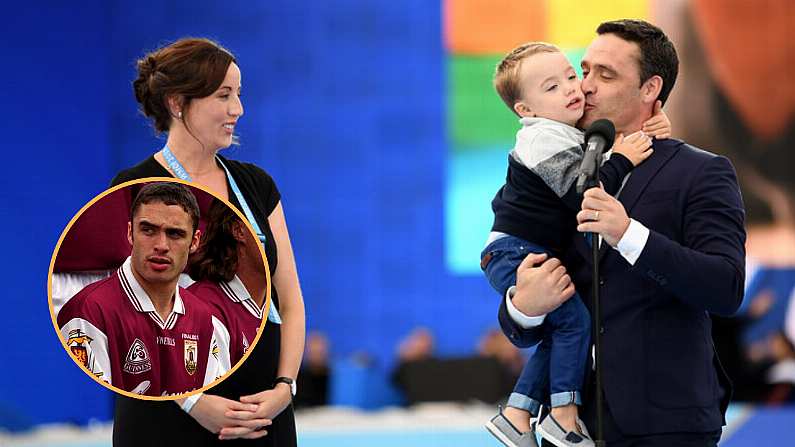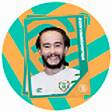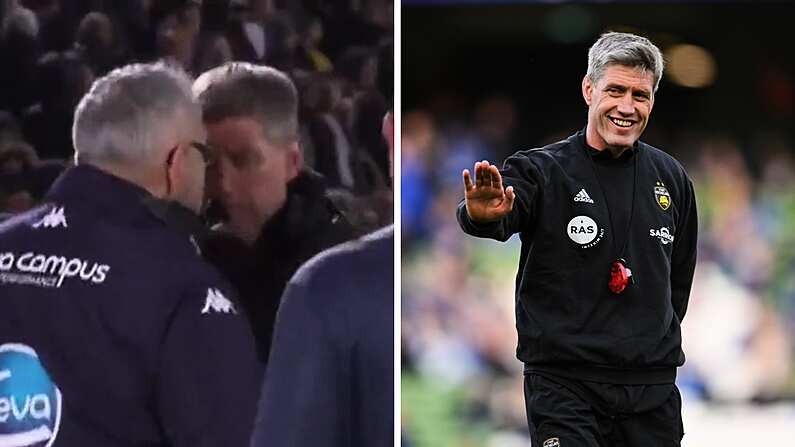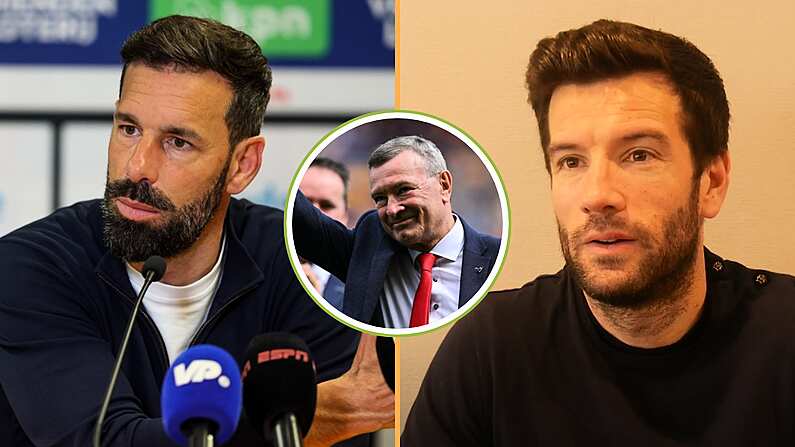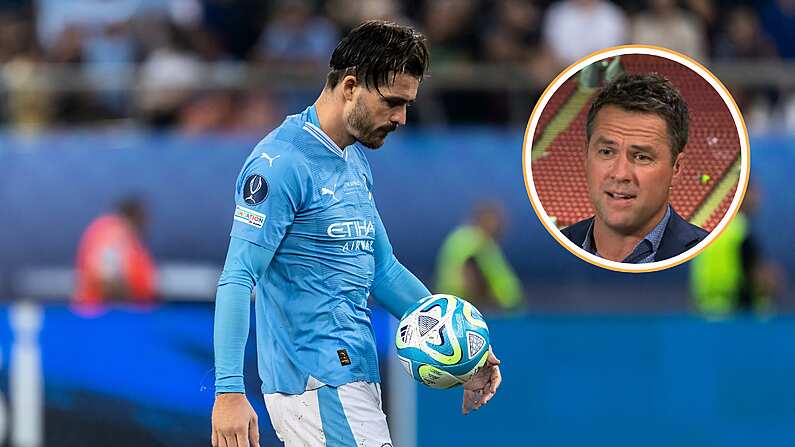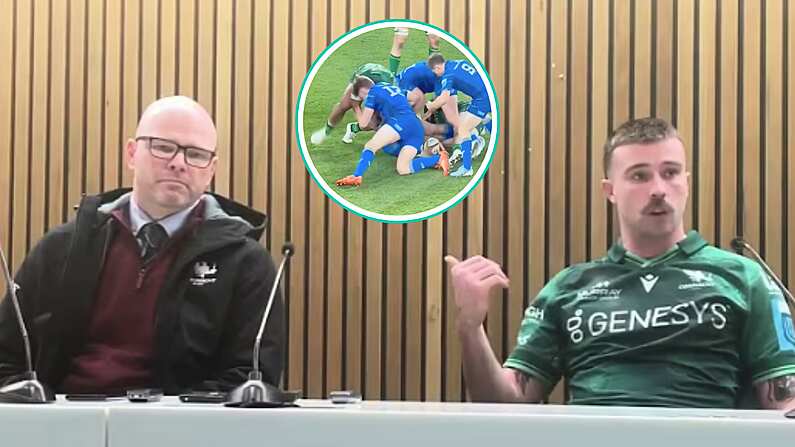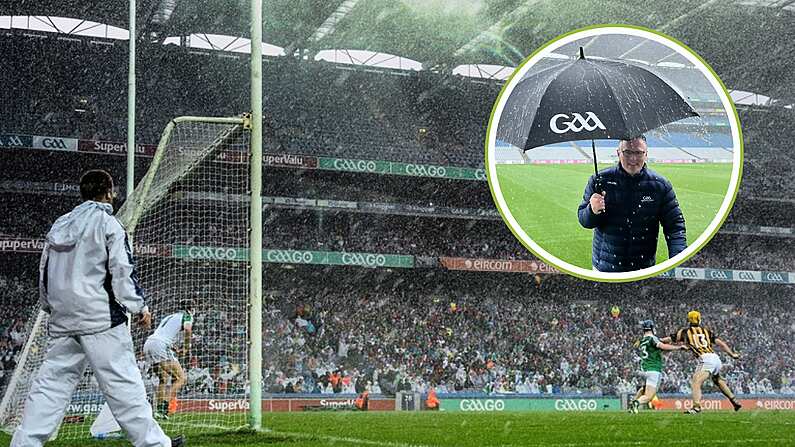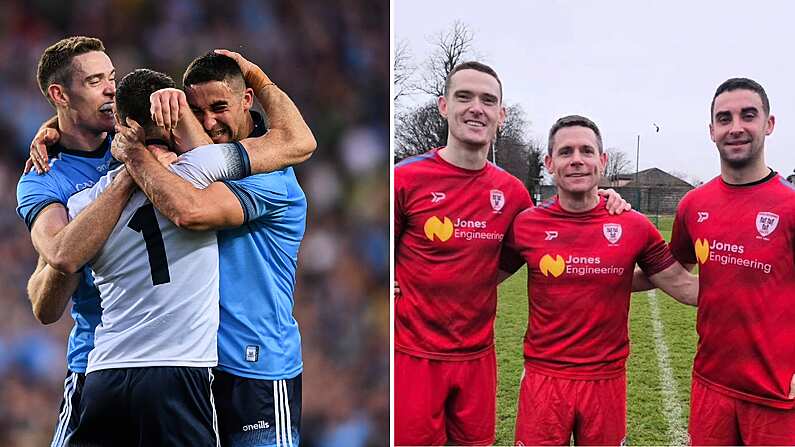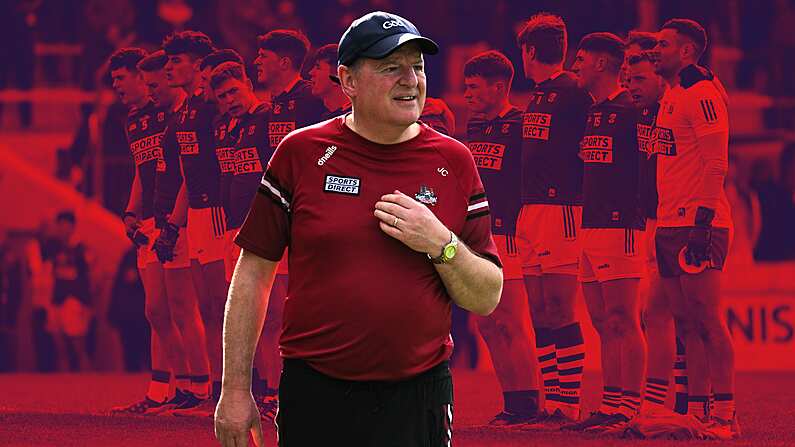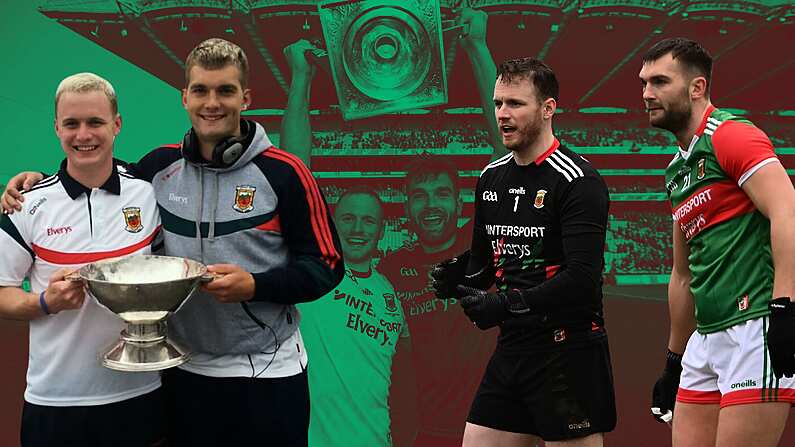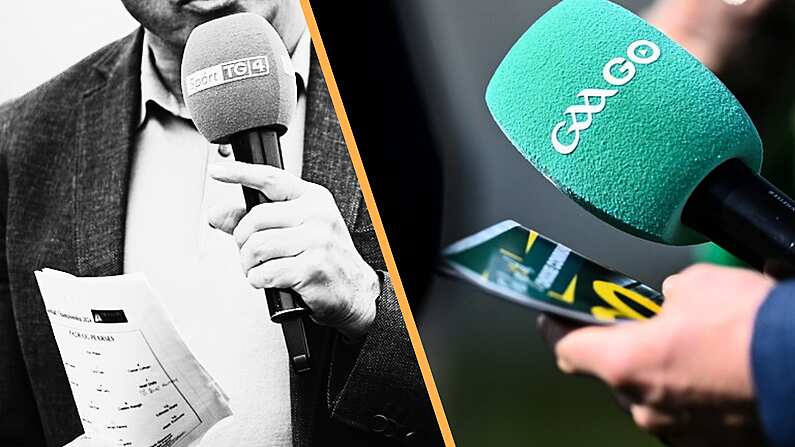Alan Kerins is among the greatest GAA heroes the county of Galway has known in the 21st century.
The dual star holds the remarkable distinction of holding All-Ireland medals in both codes, and at both club and inter-county level.
He was part of the Galway team which won the 2001 All-Ireland senior football championship, while hurling and football All-Ireland club medals were won with Salthill-Knocknamarra and Clarinbridge respectively.
An extraordinary hero on the pitch, Kerins' charity work off the pitch has rightly earned him even greater adulation.
In the mid-2000s, Kerins spent time helping missionary workers in Zambia, motivating him to set up the Alan Kerins Project, which has raised over €5 million to aid life-saving projects in communities around the world.
Kerins has become a hero in an entirely different sense of the word for his charity work but he has had to face challenges in his personal life as well.
The subject of this week's episode of Laochra Gael, Kerins recalled the story of his first son Ruadhán's birth, and the severe health issues which defined his first few weeks.
READ HERE: Clare Legend Recalls All-Star Homecoming As The Time His Father's Death Hit Home
READ HERE: Galway Legend Believes Footballers Are Closer To All-Ireland Win Than Hurlers
Galway icon Alan Kerins recalls story of family miracle on Laochra Gael
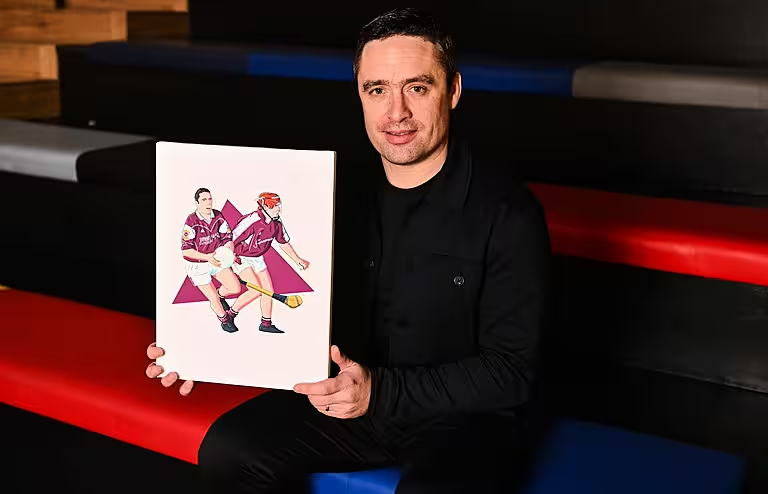
15 January 2024; Former Galway hurler and footballer Alan Kerins attends the launch of TG4's award-winning Laochra Gael series at the Light House Cinema in Dublin as the Gaelic sport biography series returns for another season. Photo by Piaras Ó Mídheach/Sportsfile
Alan Kerins' episode of Laochra Gael aired on Thursday night on TG4 and, as part of the documentary, he recalled the story of his son Ruadhán's birth in 2015.
Kerins and his partner Ciara married on December 4th 2012 and, by a strange coincidence, their son was born on the exact same date.
"Fast forward three years and we were blessed with Ruadhán," says Kerins in Laochra Gael, "he came a little bit early, about three or four days early, and he actually came on our wedding anniversary."

25 August 2018; Former Galway dual GAA player Alan Kerins is joined on stage by his wife Ciara and son Ruadhán on the occasion of Pope Francis addressing The Festival of Families at Croke Park in Dublin. Photo by Stephen McCarthy/Sportsfile
Immediately, however, it was clear that the early weeks of Ruadhán's life were to be immensely challenging.
Kerins emotionally recalls the shock of discovering that Ruadhán suffered from a rare illness which was having a severe impact on his wellbeing
He was lethargic, he wasn't feeding. I remember I was going out the door and I could have gone right to go home or go left up to the nurse's station.
Whatever came over me, I just went up left. I said 'this baby hasn't fed since 12 o'clock today, he's been sleeping eight hours, is that normal? I thought they were meant to be screaming after three hours.
She ran down, checked him, checked his blood sugars, and I will never forget her face. She said, 'these baby's sugars are 0.8, 0.9, he needs to go to intensive care straight away.
Ruadhán was diagnosed with congenital hyperinsulinemia, a rare condition which causes the body to produce too much insulin - in turn limiting blood sugar levels.
Alan Kerins remembers the emotional toll those weeks took on him and his partner, as their newborn continually failed to respond to any medicine prescribed to him.
"Day one, day two, day three, day four went on and on and on. He still wasn't stabilising, still wasn't reacting.
"It was heartbreaking. We were squeezing his feet, waiting on numbers every half hour.
"Tears every day, wondering if you're going to get your baby back. You couldn't hold him, because he had loads of wires, you couldn't bring him for a walk. He hadn't been outside in three or four months.
"You didn't have time to think about it, you were just so focused on supporting Ciara and giving Ruadhán love and support. Whatever you could do for him."
There are two different kinds of congenital hyperinsulinemia - focal and diffuse. Diffuse is far more severe, effecting the entire pancreas, meaning that extensive surgery is required.
The bad news came in the new year that the condition was indeed diffuse, meaning that 95% of Ruadhán's pancreas would have to be removed.
I'll never forget letting him go...we didn't know when we'd get him back.
It is hard to fathom the fear of a newborn son being faced with surgery, and Kerins' emotion comes through as he recalls the story on Laochra Gael.
When a call came shortly after the surgery began, Kerins and his wife feared the worst.
"They rang us an hour later saying, 'you have to get to the hospital quickly.' Into the hospital, up to the top of the stairs, stone cold face. He said, 'we're going to need to get you inside.' I said, 'is he alive? Tell me he's okay.' He says, 'get inside, he'll sit you down.'
"I was bracing myself for the news.
"'Would you believe, we got a miracle,' he said. 'It's only focal. We only have to remove 5%.'
"The scans were wrong, whatever happened. Normally they find it difficult to find the little lesion, but they said it was staring them right in the face when they opened him up. They took out less than 5% and he made a full recovery. We got a miracle."
A remarkable trial for the Kerins family - but one thing which is made abundantly clear in Thursday's documentary is the adoration that Alan has for Ruadhán and his two younger siblings.
Kerins says that his mission is to make as much time as possible for his children - who can be seen practising both their hurling and football skills in their Galway jerseys in the back garden with their father.
If they grow up to be anywhere near as good as their father was, they will be some players indeed.
You get the sense from Thursday's Laochra Gael, however, that Alan Kerins is overjoyed just to have them play such a special role in his life, after the "miracle" they experienced early in Ruadhán's life.

